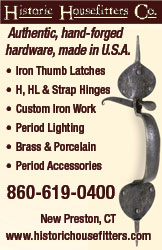
Home
 Structural Products & Services, Stairlifts
Structural Products & Services, Stairlifts
Furniture, Clocks,
Accessories
Antiques, Folk Art,
Fine Art, Auction Houses
HENRY WARD BEECHER
by Anya Laurence
|
He was a clumsy and bashful boy with an enlarged palate...an aunt once said,”When Henry is sent to me with a message, I always have to make him say it three times. The first time I have no manner of an idea, as if he spoke Choctaw; the second I catch now and then a word; by the third time I begin to understand.”* Ironically, this little boy grew up to be one of the finest orators ever known...”The greatest preacher the world has seen since St. Paul preached on Mars Hill” was just one of the tributes paid to the internationally-known Rev. Henry Ward Beecher, pastor of the Plymouth Church, Brooklyn, New York, from 1847 to 1887. Henry started his ministry in a little place called Lawrenceburg, Indiana, on the Ohio River. He said of this place: “The flock which I found gathered in the wilderness consisted of twenty persons. Nineteen of them were women and the other was nothing.” * Nevertheless, he went back to Massachusetts to collect his bride, Eunice Bullard, and they began life in two rooms over a hardware store,which were filthy and had to be cleaned by the newlyweds. The children soon started to arrive and Henry was often absent on speaking tours. Eunice complained about the weather and after two years he accepted a call to the Second Presbyterian Church in Indianapolis, where he stayed until he was persuaded to ascend the pulpit at Plymouth Church in Brooklyn. Henry was born in Litchfield, Connecticut, in 1813, and was educated at the local schoolhouse and at Amherst College. Although he desperately wanted to go to sea, his father Lyman soon brought him into the ministry, as he did with all his sons. His wife, Eunice White Bullard, was born in 1812 in West Sutton, Massachusetts (the house is still occupied) and taught school in various places. The marriage, on August 3, 1837,took place in the house at West Sutton, and produced 11 children, only 4 of whom, Harriet, Henry, William and Herbert, lived to adulthood. |
During his very successful ministry at Plymouth, Henry was invited to England and various other places to speak and preach. His life was exciting and productive, while Eunice aged early, became toothless and mourned the loss of her children. She did write a book, “From Dawn to Daylight: A Simple Story of a Western Home.” which was loosely based on her life in Indianapolis. That she was dissatisfied with her lonely existence is clear...but as the wife of a clergyman she realized that his life was the more important. He soon rose to become one of the most famous men in America and was idolized, not just by his huge congregation, but by hundreds of people who thronged the church each Sunday to hear this amazing speaker.
And then the axe fell. Henry was being accused of having committed adultery with one of his parishioners who whispered that fact to her husband on her deathbed. Even more upsetting was the news published in Victoria Woodhull’s newspaper that Henry was having an illicit affair with the wife of Theodore Tilton, one of his associates and a close friend. Henry had married Elizabeth and Theodore and had often visited them in their Livingston Street home. Tilton was known as a ‘free lover’ and he and Woodhull apparently were romantically involved also. This mess ended up in a trial where Beecher was vindicated, but many people refused to believe the verdict. Perhaps the following might help to change some minds. When Lyman Beecher Stowe was in middle age, the associate counsel for Beecher’s accusers, Justice Roger A. Pryor said to him:”Whenever I go to the borough of Brooklyn and see the statue of Beecher standing under the windows of the court room where we sought to drag his name into the mire, I say to myself,’How gloriously history has vindicated him and condemned us!” Many present day writers seem to insist, however, that he was guilty, and even fathered one or two children with his paramours. I prefer to think that while Henry was a man of great passions in every phase of his life, the true answer lies in Greenwood Cemetery in Brooklyn where Henry was buried after his death from a stroke on March 8,1887. Eunice followed him 10 years later, on the same date, March 8, 1897. Some years ago I visited Eunice’s niece in Massachusetts and was shown many things from the Brooklyn Beecher home. She said “Aunt Beecher was a dear little lady with white hair and a sweet smile. She visited us late in her life and I often wonder how she ever lived through that terrible trial.” * Saints, Sinners and Beechers,” by Lyman Beecher Stowe, |









